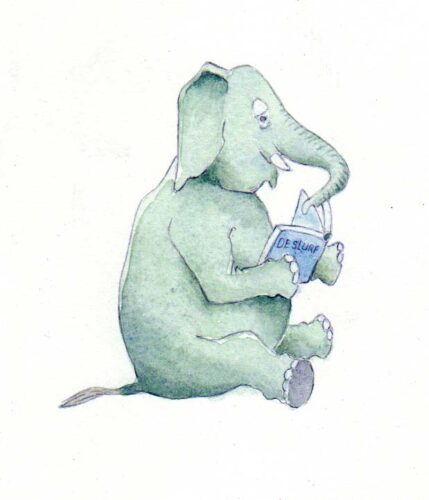A blog by Joyce Cordus
I recently read the book “Soedah, laat maar,” a Dutch novel by Maddy Stolk (‘Sudah, never mind’ in English). Tara, the main character in the book, is clearing out her parents’ house. Now that both her parents have died, she will have to face it. Never an easy job anyway, but not at all in Tara’s case.
In fact, her mother was a “hoarder,” collecting just about anything and everything. And Tara must, reluctantly, pass everything through her hands to determine what can go away and what is worth keeping. And then, with each object she takes in her hands, the memories of her mother, of her father, of her sister, of her childhood emerge. But especially the questions. The relationship with her mother was, to put it mildly, a problematic one. Mother, in fact, was severely traumatized by the horrors she had experienced in the Japanese camps in the former Dutch East Indies. In Tara’s family, however, this was not discussed. Those stories were not told. But it’s not just the objects that remind Tara of her mother that confuse her. They are also her father’s stories that he left her on recorded cassette tapes. Both the objects and the stories on the cassette tapes raise a thousand and one questions, but she no longer gets answers. At least not outright.
 Tara did not have a fun childhood. Mother tyrannized her and father could hardly protect her from it. In any case, he kept trying to justify his wife’s behavior by saying, “Sudah, never mind!” which means something like “Never mind, we won’t talk about that! The, by now, infamous ‘Indian’ silence. Only much later does Tara understand that her parents’ behavior stems from their trauma suffered during the Japanese occupation in the former Netherlands East Indies, the country they loved so much and had been forced to leave. They themselves had been unable to truly face the injustice done to them. It was too painful, too horrible, too unimaginable.
Tara did not have a fun childhood. Mother tyrannized her and father could hardly protect her from it. In any case, he kept trying to justify his wife’s behavior by saying, “Sudah, never mind!” which means something like “Never mind, we won’t talk about that! The, by now, infamous ‘Indian’ silence. Only much later does Tara understand that her parents’ behavior stems from their trauma suffered during the Japanese occupation in the former Netherlands East Indies, the country they loved so much and had been forced to leave. They themselves had been unable to truly face the injustice done to them. It was too painful, too horrible, too unimaginable.
When they were also finally forced to migrate to a homeland unknown to them, they had to hide away and reject the pain, sorrow and horrors in order to be able to build a new life with dignity in that new land.
With that, Tara’s mother in particular was sucked into the circle of retribution, to quote Desmond Tutu. That then prevented her from being loving toward the people she probably loved the most, namely her children. As a result, against their will, these were also hurt. However, Tara eventually managed to step out of that cycle of retaliation and onto a new path of forgiveness. It was because she had the courage and took the time to face her own pain, grief and anger, tell her story and confront her own suffering. It was a process of years.
Through much “inner work,” understanding gradually develops in Tara, and only then, years after her parents’ death, does the forgiveness process really take off. In fact, only after Tara herself, as it were, has reconstructed, (re)told and lived through the stories of her parents making it her story as well. In doing so, she gets help from her boyfriend. Someone who listens to her unconditionally and shows understanding. It takes Tara years to understand that her parents had acted from the suffering inflicted on them because they themselves had never been able or dared to say anything about it.
For me, the novel makes it clear that while forgiveness can be difficult and a long-term process, it is possible. Indeed, forgiveness may be necessary in order not to, unconsciously, pass on and multiply the pain of your (for) parents.
The first step then is to give yourself space to tell the story. Even if it comes out in fits and starts. After all, not everyone has to do it in the form of such a wonderful novel as Maddy Stolk has done. Saying “Sudah, never mind,” however, is not an option.
– Joyce Cordus, January 2024

